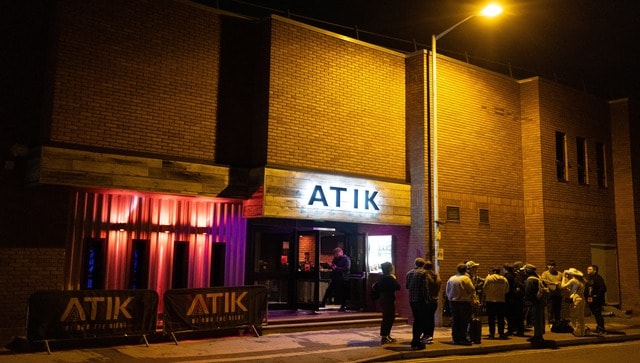Say No to Partying: Why Gen Z in the UK is ditching nightclubs
Say No to Partying: Why Gen Z in the UK is ditching nightclubs

Nightlife in the United Kingdom is losing its buzz. The country’s younger population is staying at home instead of partying at nightclubs.
As clubbers disappear from dance floors, hundreds of nightclubs have been forced to shut down in the UK since the COVID-19 pandemic. Some of the biggest club operators have now urged the British government to intervene.
What is going on? Why are youngsters ditching the nightlife in the UK?
Let’s take a closer look.
UK nightclubs close shutters
Recent data says that 31 per cent of nightclubs in the UK have closed since the pandemic. As many as 396 nightclubs shuttered between March 2020 and December 2023, according to the Night Time Industries Association (NTIA), a nightlife advocacy group.
The NTIA equated this to two closures per week, reported BBC.
Earlier in February, major nightclub chain Rekom, which runs club brands Atik and Pryzm, announced the closure of 17 venues, leading to 500 job losses. The company said its clubs in Birmingham, Leeds, Nottingham, Portsmouth, Plymouth and Watford, Dartford, Romford, Windsor and Wrexham will be shut, as per The Telegraph.
Peter Marks, the CEO of Rekom – the UK’s biggest club chain – told BBC that he visited Leeds last month. “I walked around between 7pm and 11pm, and there were no more than 200 people out in the city. Two years before, it would have been really quite busy and buzzing”.

A report from CGA Neilson last August found that 31 per cent of clubs in the UK had to permanently close between June 2020 and June 2023.
According to the NTIA, 4 per cent of the entire nightclubs in the UK shut down last year.
The advocacy group said the data depicts the “profound and systematic marginalisation of the nightclub sector”.
“The closure of nightclubs transcends mere economic repercussions; it represents a cultural crisis endangering the vibrancy and diversity of our nightlife. Nightclubs serve as vital hubs of social interaction, artistic expression, and community cohesion, making their preservation imperative,” Rolling Stone quoted the NTIA as saying.
The group called on the UK government to take immediate action to “provide financial relief to struggling nightclubs”. “Central to this relief is the imperative for the government to reduce VAT to 12.5 per cent across the board, failing which further closures across the sector are inevitable.”
ALSO READ: Japan, UK enter recession: How it could affect everyday life
Why is this happening?
The cost of living crisis in the UK is deterring youngsters from going out mid-week and spending on nightclubs. Gen Z is also drinking less and more variety of nighttime entertainment has further impacted the nightclubs, BBC reported citing experts.
As per the UK’s National Health Service (NHS), a third of people below 25 have not had alcohol for at least a year.
A survey by dance music platform Keep Hush released in July 2022 found that only 25 per cent of Gen Zs would consider a night out, while 13 per cent of Millennials preferred going out, The Telegraph reported.
The pandemic prompted clubbers’ “retirement”, resulting in more people wanting to stay in, the report said. Another reason for this was that Gen Z was becoming more health conscious.
“In recent years, lots of research – some of which predates the cost of living crisis – has suggested that young people are drinking less alcohol,” Tom Allingham from money advice group Save the Student told BBC.

As per DrinkAware, people between the 16 to 24 ages are least likely to drink and
26 per cent of that age group are teetotallers.
The growing options of no- and low-alcohol drinks are also driving younger people away from booze, noted Fortune magazine.
Stung by the UK’s cost of living crisis, Gen Z and Millennials were cutting back on clubbing. According to a Savanta survey, over two-thirds of people in the 18 to 34 age group in Europe had slashed their spending on alcohol in bars and restaurants in 2023 primarily due to cost of living pressures.
“There appears to be a generational shift in attitudes towards alcohol consumption that inflationary increases have simply accelerated, rather than created,” Nikki Lavoie, EVP of marketing, brand, and innovation at Savanta, previously told Fortune.
Younger people who still drink alcohol are developing a tendency to “pre-drink” in houses and spend the bare minimum at the club later, the magazine reported.
More and more students were also spending their spare time between school and part-time work to make ends meet, according to the National Union of Students (NUS).
Michael Kill, chief executive of the NTIA, said that there has been a shift in young people’s habits, especially away from midweek clubbing.
“There’s a culmination of issues. Without a doubt there’s somewhat of a change of habit. There’s a lack of stability in the market at the moment. I’ve definitely seen midweek sessions drop, with students not as prevalent,” The Telegraph quoted him as saying.
Freddy Masters, co-founder of Keep Hush, said that while the demand for clubbing from youngsters is returning post-pandemic, their tastes have changed.
“Tastes in nightlife seem to have shifted, with a big focus on unique experiences. We think people are likely to either attend free or cheap community-driven events, or large scale experiences that they’d save up for (and go with a big group) such as festivals and high production events,” he told The Telegraph.
With inputs from agencies
What's Your Reaction?



























































